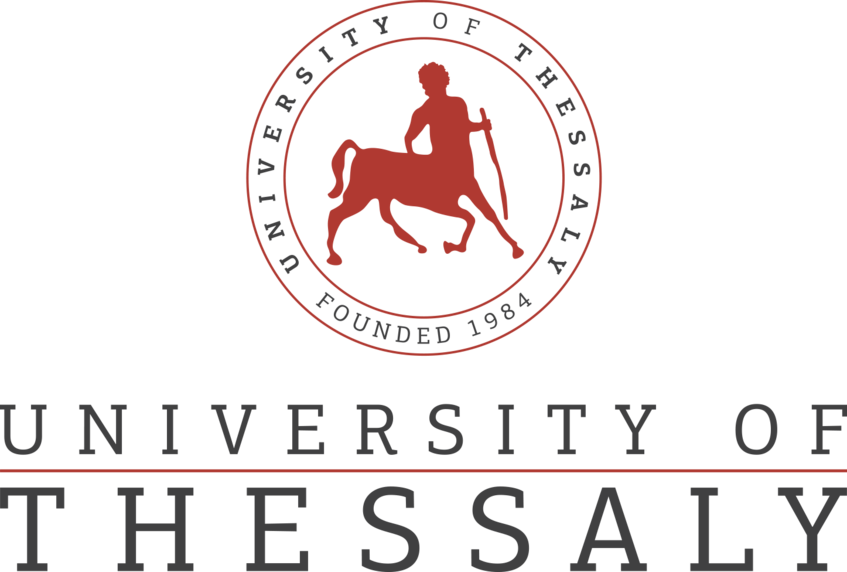University of Thessaly, with 18 Departments and various Research Centres, is a University with its own identity and with a prominent position in our national educational system. It was established in 1984 as University Of Thessaly (Presidential Decree 83/1984). Its administrative and academic centre is in the City of Volos. The University of Thessaly is extended over the whole Region of Thessaly with academic Departments in Volos, Larissa, Trikala, Karditsa and Lamia. University of Thessaly provides undergraduate and postgraduate programmes and extra-curricular modules in specific research and business fields, for over 12000 students.
The main mission of the University of Thessaly is the promotion of scientific knowledge through research and the contribution to the cultural and economic development of the local community and wider society. Today the University of Thessaly has 9.647 undergraduate students, 1.471 postgraduate students and 1.148 PhD students. It also has approximately 560 members of teaching and research staff, 100 members of teaching staff with a temporary teaching contract, 310 members of administrative staff and a large number of research associates at the various laboratories of the Departments of the University.
The Department of Physical Education and Sport Science (DPESS) was established 21 years ago. It has 22 academic faculty staff, 9 teaching and laboratory staff and 11 technical and administrative staff. The objectives of DPESS are to: promote public awareness of the importance of physical activity as a main contributor to the improvement of health and quality of life; cultivate and promote Physical Education and Sports Science through theoretical and applied teaching and research; provide graduates with the knowledge and skills necessary for their scientific and career development; contribute to the advancement of Greek Sports and to promote the ideals of sportsmanship, ethical behaviour and fair play; and to promote exercise levels of the Greek population. In its last external Audit Report, the DPESS was described as “a leading institution for physical education and sports science in Greece and a respected institution at an international level”
(pp. 21: www.pe.uth.gr/cms/images/stories/entypa/etisia_ek8esi_esoterikis_a3iologisis_2014-2015.pdf
In addition to undergraduate studies, the DPESS is particularly active in organizing postgraduate programs. The DPESS organizes Master’s level programs autonomously, as well as participating collaboratively with other European Universities like the European Master in Sport and Exercise Psychology (an Erasmus Mundus Master program).
Professor Papaioannou and staff of the DPESS have extensive experience in the measurement and interventions in physical activity and sport, carrying out applied research and developing evidence-based physical activity interventions in schools, sport and the community and have coordinated and participated in numerous EU projects, including Erasmus+ Sport projects. Prof. Papaioannou, Dr Digelidis and other members of the DPESS developed the Greek national curriculum for Physical Education for the Institute of Educational Policy which is currently implemented across Greece.


